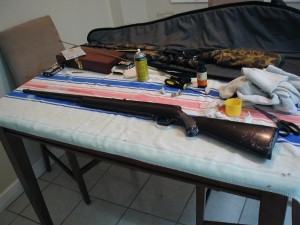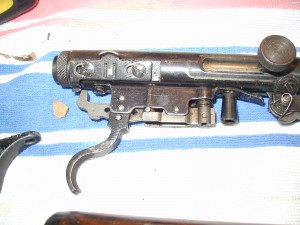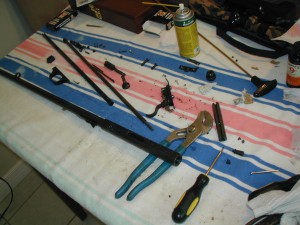So, I’ve been thinking about nation health care lately. It’s been in the news, and people have been discussing it on a forum I visit. By “discussing”, of course, I mean condescending to people who disagree with them and glossing over any inconvenient facts they encounter along the way.
I normally fall on the less-government side of things. I’m fairly conservative, occasionally flirting with libertarianism. I don’t like expansion of government into, basically, anything. However, I’m conditionally in favor of a national health-care system, after thinking about it a bit. I’m writing down why, here, so that I can remember it later.
The reasons I’m in favor of a national health care system boil down to two bullet points:
- It’s inevitable that we’ll get something along those lines, whether it’s government-mandated private insurance or public provision. We already have the start of it, and we’re going to see more, not less.
- Health insurance cannot be done efficiently without coercion. Won’t work. Private companies and individuals aren’t, ideally in the position to exercise lots of coercive power over each other, while coercive power is the government’s stock in trade.
I consider point 1 to be relatively obvious, and not very interesting, so I’m ignoring it for the moment.
Point 2 is the controversial area. Why can’t uncoerced health insurance be efficient? Two words: perverse incentives.
Perverse incentives means that the various parties, if they act in a rational way, will generally undermine the system. Any system with too much in the way of perverse incentives will eventually break, usually quickly, unless something from outside the system is propping it up.
The health insurance business is chock full of perverse incentives. The general business model of a health insurance company is thus: A private citizen makes periodic payments to the insurance company, whether in good health or poor health. If the citizen is in poor health, however, the insurance company makes payments back to that citizen. Simple enough. If the citizen is generally in good health, the company will turn a profit on the deal, and the citizen will lose money overall. If the citizen is in poor health enough of the time, or to a large enough extent, the citizen will turn a profit and the company will lose money on the transaction.
So, if we assume both parties are rational actors, it becomes obvious that they’re in direct conflict with each other. A rational individual will only want health insurance if he thinks he’ll be unhealthy enough to get more value back than he spends. A rational company will only want to insure people who are healthy enough that they’ll pay in more than they get out. Essentially, each side can only win if the other side loses. That being the case, however, neither side really has any incentive to do business with the other. If I’m running a health insurance business, the only customers I want to have are the ones who want nothing to do with me, and the only customers who want me to insure them are the ones I actively want to avoid insuring. If all participants in the market are rational, the market should cease to exist; we’ll all go our seperate ways and nobody will have health insurance.
(This, by the way, is a common fault of insurance systems in general. Insurance only really works well for all participants when you’re insuring against truly unpredictable events. If either side has a good way of telling whether the insurance will have to pay off or not, it can stick it to the other side.)
This might seem to fly in the face of current reality, where private insurance companies DO exist and DO provide insurance for individual. To that, I argue that the world is complicated. First, the insurance companies, by making deals with employers, have managed to rope a lot of people into paying for insurance who will not really benefit from it. Conversely, a lot of individuals have managed to force insurance companies, through the same means, into insuring people who are going to cost more than they’ll ever possibly bring in. This sort-of works, but it’s a kludge and it has a pretty spotty success record. Lots of people on both sides are unhappy. At the same time, insurance companies make much of their money by extracting it from the doctors and hospitals through ruthless cost control; that’s hardly a stable situation. If private insurance can only work so long as it’s able to extract resources from people who neither provide nor consume health insurance, it’s doomed.
In a healthy market, transactions are essentially win-win. When I buy something, it’s because I value that thing more than the money I spend to acquire it; likewise, the seller values my money more than the thing he is selling. In the insurance market, however, all transactions are win-lose; they are necessarily adversarial. The only question is who wins and who loses at the end of the day.
Enter the government. The major difference between the government and private organizations is this: the government can force individuals to act against their rational interests. Private organizations, generally, cannot, and we like it that way. Governments can exercise coercive force on citizens.
The only way health “insurance” works financially is if some people in good health pay into the system more than they will extract from it, and that surplus money is used to cover the costs of the people in poor health who will extract more money than they will put in. Private companies have to convince healthy people to voluntarily give them money in exchange for, essentially, nothing, and that is hard to sustain. Government can simply tax healthy people and give the money to unhealthy people. Government “health insurance”, then, is not actually insurance in any sense. It’s wealth redistribution.
I’m not, in the abstract, in favor of wealth redistribution. I do, however, think wealth redistribution can work, while health insurance cannot possibly. Taking money from some group of people to give to another group can be handled in a straightforward fashion, and everyone can know what’s going on. See Social Security.





